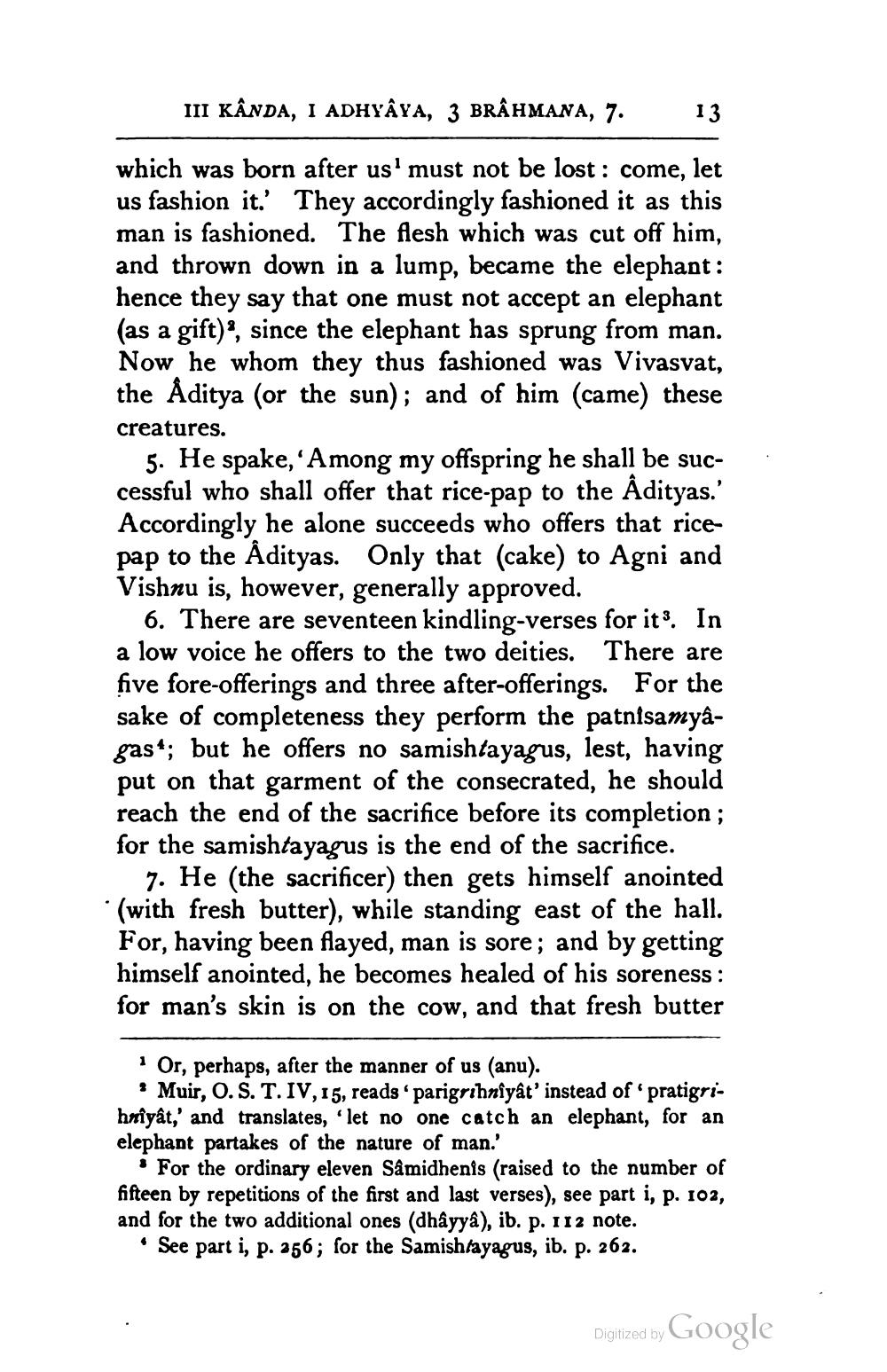________________
III KÂNDA, I ADHYAYA, 3 BRÂHMANA, 7.
13
which was born after us' must not be lost: come, let us fashion it.' They accordingly fashioned it as this man is fashioned. The flesh which was cut off him, and thrown down in a lump, became the elephant: hence they say that one must not accept an elephant (as a gift), since the elephant has sprung from man. Now he whom they thus fashioned was Vivasvat, the Aditya (or the sun); and of him (came) these creatures.
5. He spake,‘Among my offspring he shall be successful who shall offer that rice-pap to the Adityas.' Accordingly he alone succeeds who offers that ricepap to the Adityas. Only that (cake) to Agni and Vishnu is, however, generally approved.
6. There are seventeen kindling-verses for its. In a low voice he offers to the two deities. There are five fore-offerings and three after-offerings. For the sake of completeness they perform the patnisamyagas“; but he offers no samishtayagus, lest, having put on that garment of the consecrated, he should reach the end of the sacrifice before its completion; for the samishtayagus is the end of the sacrifice.
7. He (the sacrificer) then gets himself anointed (with fresh butter), while standing east of the hall. For, having been flayed, man is sore; and by getting himself anointed, he becomes healed of his soreness : for man's skin is on the cow, and that fresh butter
* Or, perhaps, after the manner of us (anu).
. Muir, O.S. T. IV, 15, reads “parigrihniyât' instead of pratigrihnîyât,' and translates, let no one catch an elephant, for an elephant partakes of the nature of man.
. For the ordinary eleven Sâmidhenis (raised to the number of fifteen by repetitions of the first and last verses), see part i, p. 102, and for the two additional ones (dhâyyâ), ib. p. 112 note.
See part i, p. 256; for the Samishlayagus, ib. p. 262.
Digitized by Google




